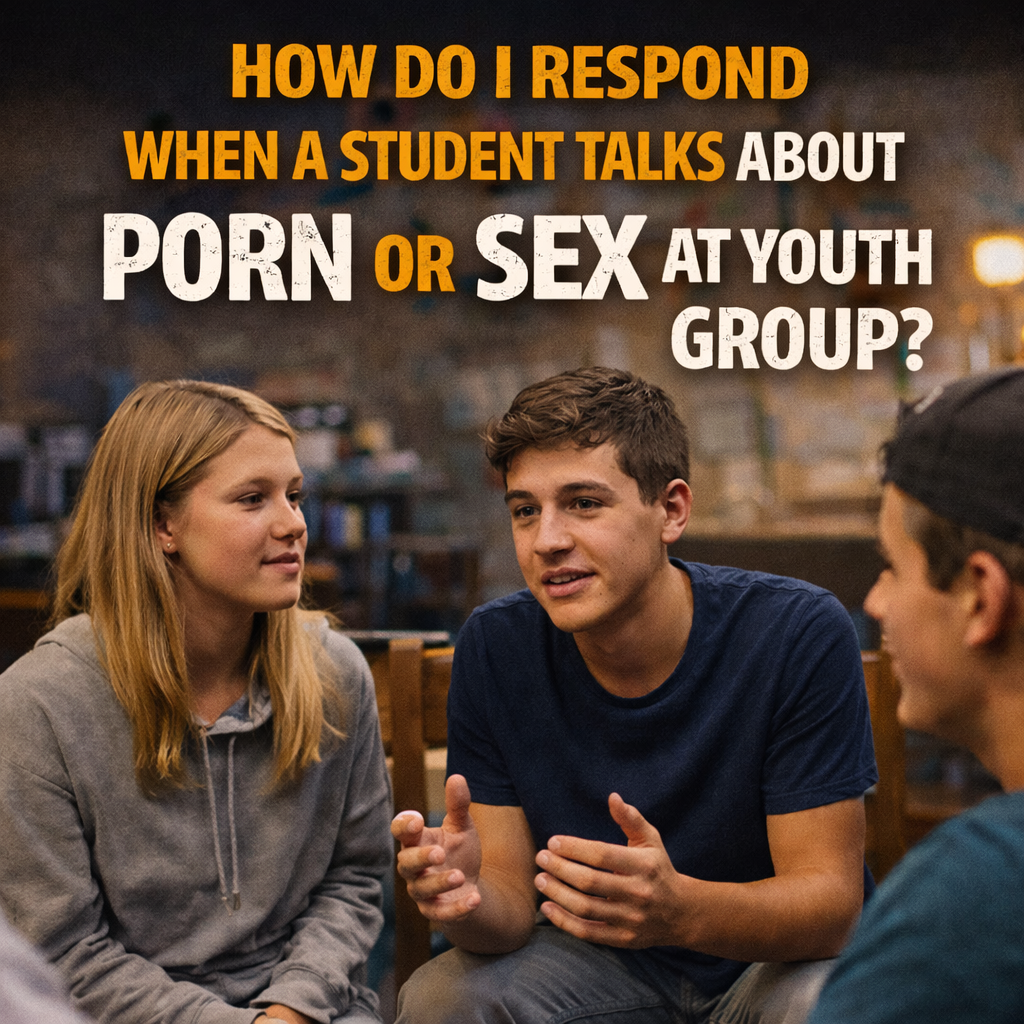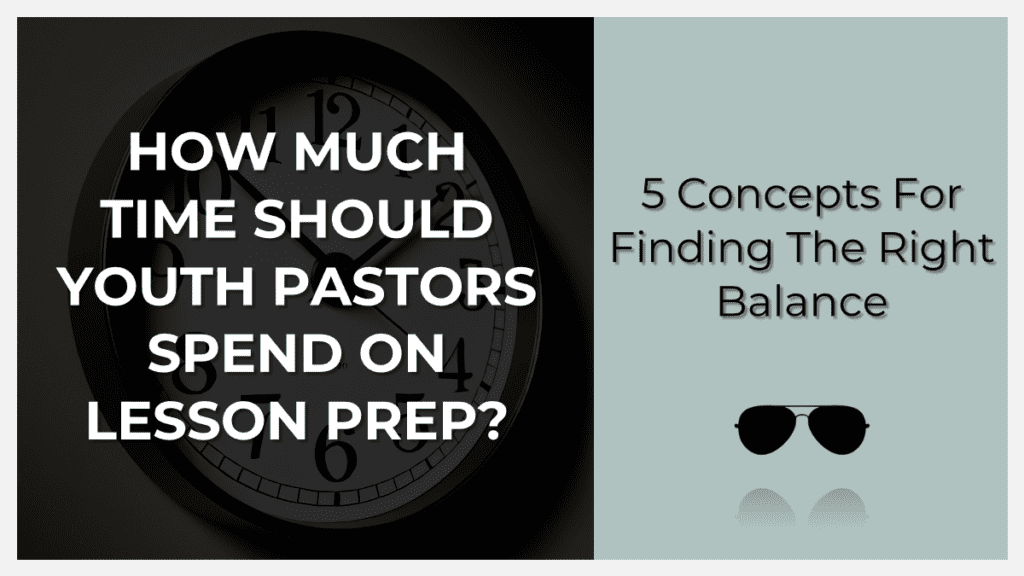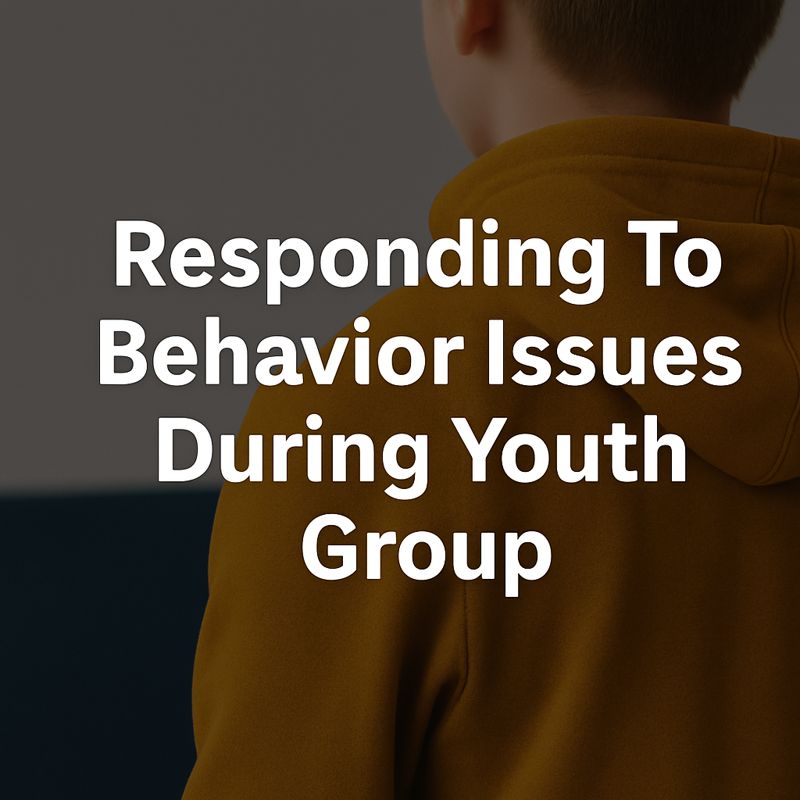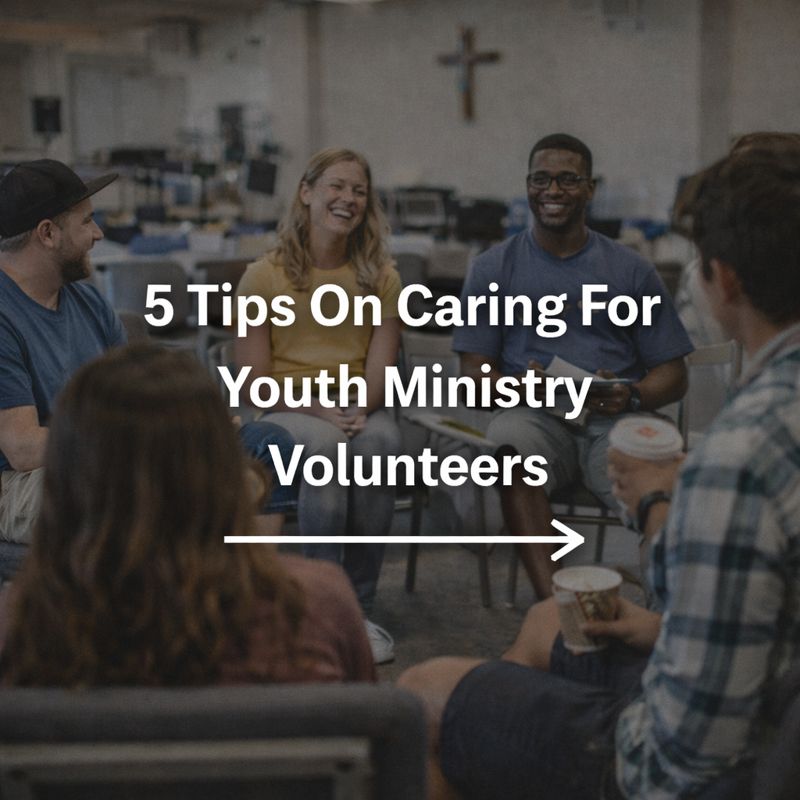
How Do I Respond When a Student Talks About Porn or Sex at Youth Group?
For most of us, February is the month of love—and also the month of the “sex talk” in youth group.

A lead pastor I once worked under had this beautifully awful way of watching the Holy Spirit work. Not infrequently, during teaching on a Sunday morning, he would reach a point where a tie-in from a staff member or close friend would make sense to his point – and next thing you knew, your name was being called to join him on stage and begin sharing a Word that you had zero preparation to give. It was genius, actually. Each and every time it happened, the things that were shared were authentic, deep, and clearly provided by the Lord Himself.
On an occasional basis, this kind of impromptu communication of biblical truths can be fun (or nerve-wrecking, depending on your perspective). When we sit back and remember the very Giver of Life as also being the Giver of our words, it begs the question… How much time should a youth pastor spend on lesson prep?
As much as we can all agree on the impact of seeing the Holy Spirit lead a testimony; there is an equal reality to the responsibility we are gifted in being the weekly presenters of Scripture to the students entrusted to us. Are we stewarding that responsibility well? Knowing the context, the meaning, the application – and then preparing to communicate it, through prayer, in a way that will impart the transformative Word of God to the students He loves; it’s a weighty thing.
Here’s the tension: the sermon is a vitally important part of youth ministry – if we’re not clearly conveying God’s Word, youth group is just a social hangout. But the equal truth is that a well-prepped sermon doesn’t automatically create disciples. Discipleship is deeply relational, and we have to be careful that hours spent on lesson prep don’t overshadow time spent mentoring and living life with students. Research backs this up: most of us can more easily name the mentors who shaped our faith than recall the details of any one sermon. Students don’t need a “perfect” talk as much as they need a pastor who is available, invested, and walking alongside them. So yes, prepare well – but not at the cost of being present in students’ lives.
A well-prepped sermon doesn’t automatically create disciples. Discipleship is relational. Both are important, and when one is strong – it’s to the benefit of the other.
We must be careful that our preparations for teach doesn’t overshadow our leadership to the point that other key aspects of ministry suffer.
Scripture preached faithfully will find a home to flourish in the heart of a student led relationally.
There’s a huge difference between being a teacher and being a shepherd. What students need most isn’t a “perfect” sermon—it’s a pastor who shares biblical truth with them faithfully, while remaining available, invested, and present in their lives. Lesson prep is important; AND relational discipleship bolsters the ability for you to live out what you preach alongside a watching crowd.
On the flip side, poor preparation can also weaken your impact. If every week is rushed, your sermons will:
A good sermon isn’t just about knowing what to say. A good sermon is about intaking God’s Word into your own heart, first, and letting it have full effect in you; and then offering up that sustenance to students in a way that they can digest. If you’re looking for more resources to learn sermon prep, this resource list from The Lead Pastor is targeted toward lead pastors, but there’s a lot we can glean from it as youth pastors!
At G Shades, we get it. We know that most youth pastors wear a ton of hats, and teaching is just one part of their role. It’s helpful to see some breakdowns. So, here’s a realistic guideline of how much time to spend on sermon prep each week based on different ministry contexts:
| Ministry Context | Recommended Lesson Prep Time |
| Full-time youth pastor (large ministry) | 8-12 hours |
| Full-time youth pastor (small to mid-sized ministry) | 5-8 hours |
| Part-time youth pastor / bi-vocational | 3-5 hours |
| Volunteer leader teaching occasionally | 1-3 hours |
The key is efficiency. What you do with your prep time matters more than how many hours you spend.
Here’s how to maximize your prep time so you’re both thorough and efficient:
Before diving into illustrations or applications, start with God’s Word. Ask:
Skipping this step leads to sermons that sound good but lack biblical depth.
A great sermon hinges on how clearly you communicate. Structure your message with 5 key sections:
1) Introduction – What real-world experience introduces this topic?
2) Tension – What real-life struggle does this passage speak to?
3) Truth – How does the gospel address this issue?
4) Descent – What should students do in response?
5) Landing – What could happen if students began living this way?
The simpler the structure, the more effective the message.
Students learn through stories as those stories intersect theology.
A sermon without engagement is just a lecture—students need both truth and connection.
You don’t need to memorize every word. You just need to own the message. Best practice:
You’ll forget a paragraph from your manuscript every once in a while. Occasionally, you’ll drift away from a pre-planned teaching point. Sometimes you’ll have to pause for 4 seconds mid-sermon to remember what you’re supposed to talk about next. But, big picture, internalizing rather than memorizing allows you to find the intersection of using your prep time most efficiently, being most prepared, and giving the Holy Spirit space to work in the moment.
If you’re overwhelmed with youth pastor lesson prep, you don’t have to do it all alone. A strong youth ministry curriculum can:
Instead of spending 10-15 hours crafting every sermon from scratch, using a curriculum can help you prep effectively in 2-5 hours (depending on your gifting or whether or not you’re utilizing video messages).
When to consider using curriculum:
For our full guide on choosing a great youth ministry curriculum, check out Choosing The Best Youth Ministry Curriculum For Your Church. A great youth ministry is built on how well you disciple students, and sermon prep is only a small portion of that.
Lesson prep matters, but students won’t remember every sermon you preach. What they will remember is:
Spend enough time prepping to teach well, but not so much that you forget to pastor. At the end of the day, your role is ultimately to walk with students as they live out what you preach, not simply to preach.
Related Posts:
What Makes A Curriculum Truly Gospel-Centered?
Check out Base G – a structured, gospel-centered curriculum designed to help youth pastors balance depth and efficiency in their teaching.

For most of us, February is the month of love—and also the month of the “sex talk” in youth group.

A tired, defeated youth pastor emailed me recently asking for advice about behavior issues during youth group. She had already

It’s a fact: we could not do youth ministry or have a thriving group without our volunteers. Volunteer leaders allow